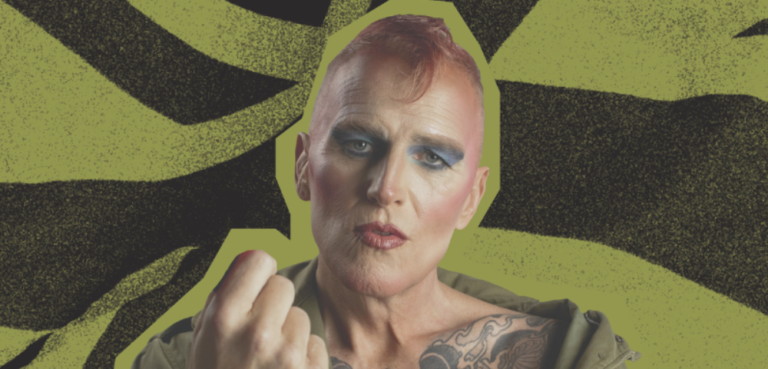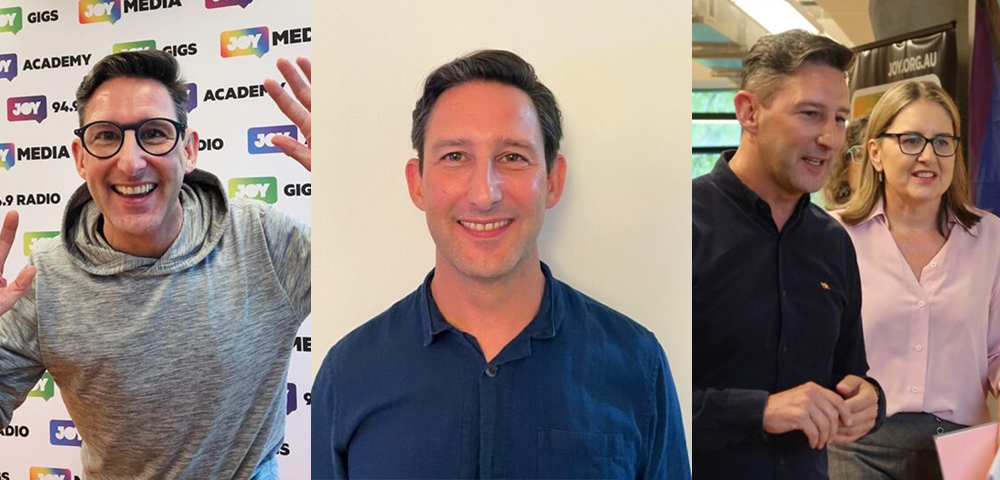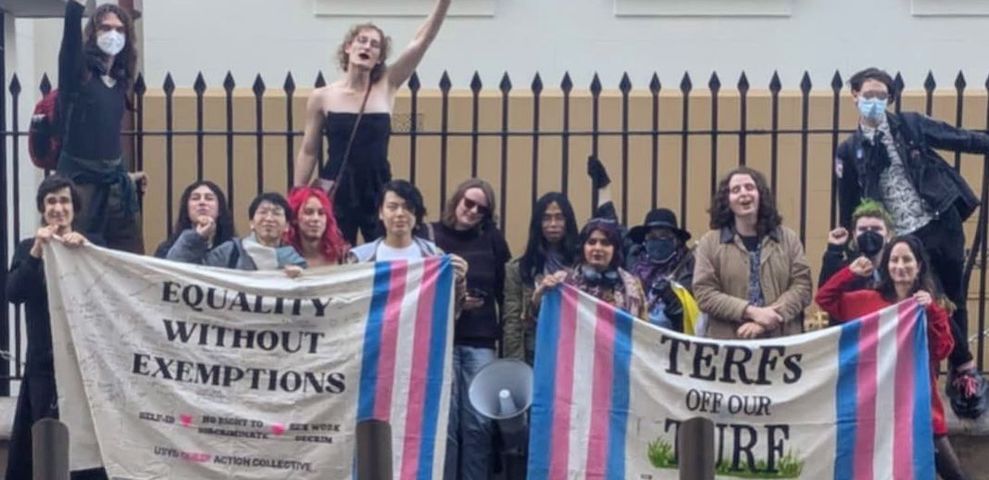
Carmen’s legacy

SINCE the Carmen Rupe Memorial Trust (CRMT) was founded in 2012, the group dedicated to the late trailblazing trans* icon has endeavoured to continue her work by educating and inspiring both the LGBTI and wider communities.
Rupe has been credited for advancing trans* recognition both here and in New Zealand and for increasing respect and inclusion of the trans* community. She also soon became a crowd favourite during her years marching in the Sydney Gay and Lesbian Mardi Gras (SGLMG) Parade.
Following her death in late 2011, CRMT has made sure her work and visibility endured not just in the parade, but also with legislative progression, community attitudes and peer support.
In this year’s Mardi Gras season, the group will once again host Gender Trailblazers — an event featuring high-profile trans* advocates. At its inaugural event in 2014, guests included Chaz Bono, Cher’s son, and Group Captain Cate McGregor, Australia’s highest-ranking military official.
For this year’s edition of Gender Trailblazers, CRMT director Kelly Glanney could not hide her excitement about American actress, musician and LGBTI icon Calpernia Addams being in the line-up.
“The amazing courage and resilience Calpernia displayed in not just surviving the brutal hate crime murder of her lover Barry Winchell but miraculously managing to pull herself up by those high heeled boot straps to carve out a truly amazing career as both activist and artist in Hollywood has long been a huge inspiration to me,” Glanney said.
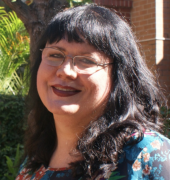
Addams first came to prominence after A Soldier’s Girl in 2003, a movie about her relationship with Winchell, a murdered US Army soldier, which also played a role in ending the US Military’s oppressive “Don’t Ask Don’t Tell” policy.
She will appear at Gender Trailblazers alongside Australian trans* activist and musician Paige Phoenix and Aram Hosie, the partner of former Western Australia Senator Louise Pratt.
While there has been criticism over the lack of trans* inclusion and visibility at past Mardi Gras festivals, with some considering Rupe and later her trust’s parade floats to be the sole representation of the trans* community in the parade, Glanney believes things have improved.
“Historically speaking there have certainly been issues around a lack of trans* and gender diverse visibility in the Mardi Gras festival, but things have improved markedly since SGLMG set up its first Trans* Gender Diverse Working Group in 2013,” she said.
“The success of the inaugural Gender Trailblazers event featuring Chaz Bono and Cate McGregor, and the trans*, intersex (and) queer inclusion float FantasTIQ being selected as one of the lead floats in last year’s parade is evidence of that turn around.
“Clearly there’s still a lot to do but I’m confident we’ll see increasingly more trans* participation in the festival over coming years.”
Increased visibility of high-profile trans* people has given Glanney hope the community’s continuing struggles will receive much-needed mainstream attention.
“Trans* representation in the media and popular culture more generally has improved markedly in recent years and I’m increasingly confident that trend will continue over coming years,” she said.
“Our challenge now is to leverage this up-tick in goodwill towards trans* and gender-diverse people to best effect the delivery of real tangible outcomes — better access to healthcare, to housing and equity in employment opportunities.”
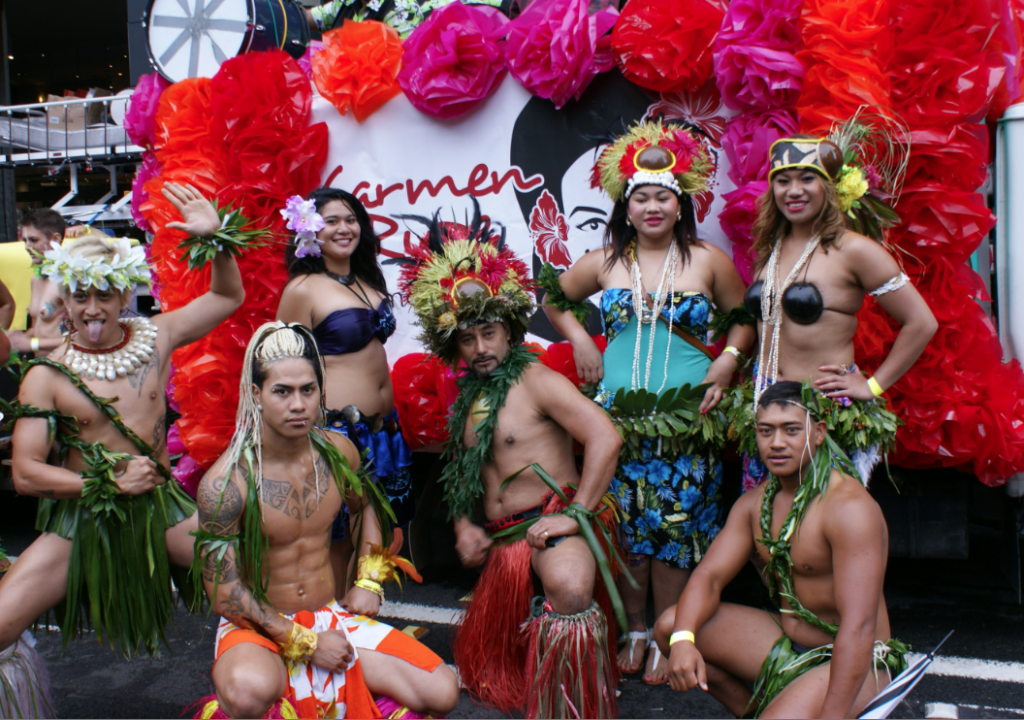
However, with every few steps forward, steps back seem to follow, with public unfavourable remarks or even the tragic death of trans* people.
Glanney particularly resents recent comments made by 1970s feminist icon and current social commentator Germaine Greer, who denied the existence of transphobia and challenged the legitimacy of trans* women being involved in feminism.
“Greer has a history of making dehumanising statements about transgender people but as someone famous for writing about her own experiences of lesbian sex I can but wonder if she similarly believes homophobia is also just a figment of people’s imagination,” she said.
“The sad irony here does not escape me — Germaine was undoubtedly one of the great thinkers of her day, but is sadly becoming far less relevant in later life due to this kind of outmoded world view.”
During her time with the CRMT, Glanney has learned more about herself and the trans* the community.
“Leading the CRMT continues to be a deeply fulfilling and exhilarating experience,” she said.
“My most important lesson thus far has been that as trans* people we are far more powerful than we know and that we can achieve a whole lot with very little when we put our minds to it — especially when we can see the real strength that exists in diversity and learn to work ever more cooperatively together to achieve common goals.”
**This article was first published in the March edition of the Star Observer, which is available to read in digital flip-book format. To obtain a physical copy, click here to find out where you can grab one in Melbourne, Sydney, Brisbane, Adelaide, Canberra and select regional/coastal areas.
